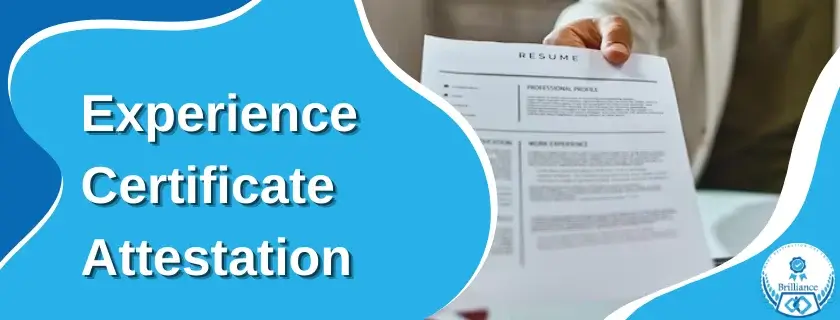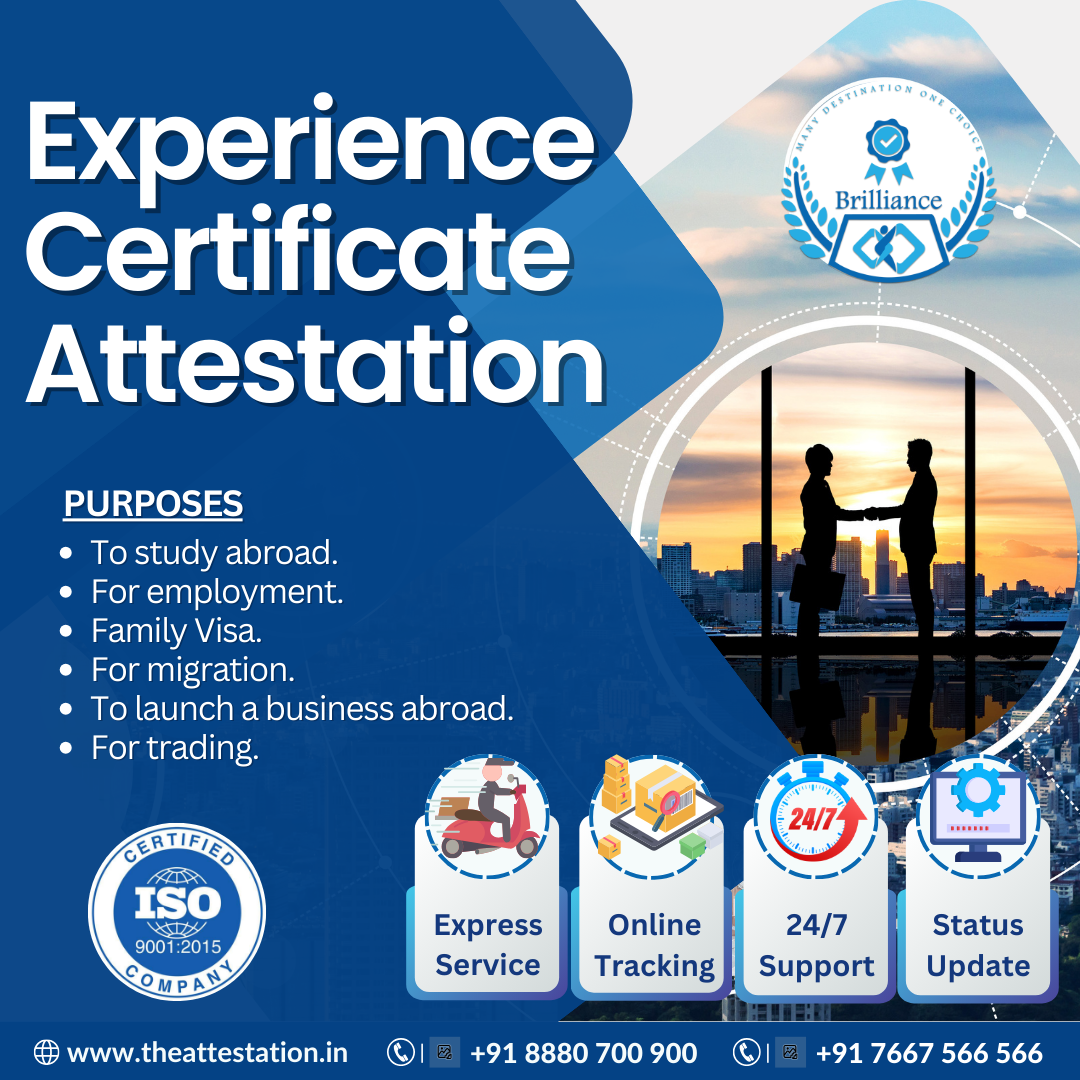An Experience Certificate Attestation is an ultimate step in the formal verification of employment. This is a document where an individual gives the history of their work that is usually required for immigration, job application, or professional purposes. However, to the country concerned, the conditions of experience certificate attestation and its preceding procedures may be different from that of another country.

The following outlines the basic principles of the procedure for certificate of experience attestation for particular countries.
Notarization: In many cases the issuing country or authority should notarize the experience certificate, some notaries or other authorised public officials should provide the notarization. This is a step to guarantee the genuineness of the document and assists in experience certificate attestation.
Authentication: Hence, the document may possibly need the authentication of the authority concerned in the issuing country after the complete process of notarization. This step consists of verifying that the signature and notary seal are correct.
Legalisation: If a certificate is to be used for a certain destination country the document must be legalised by the embassy or consulate of that country located either in the country of the issuing document or in the issuing country itself. Through this step, the document's authenticity can be verified in order to use it in the destination country.
Translation: If the certificate is an experience proof that has been written in a language apart from the official language of the destination country, the certificate may need to be translated into the official language or any of the common languages that are accepted by the authorities in the destination country. The council might also ask for a notarized and legalised translation.
Apostille: The different countries may either have special procedures which involve authentication of documents or obtaining an apostille certificate for those that are parties to the Hague Convention of Apostille.
Here are some specific requirements for popular destinations:
United States: The experience certificate generally needs a notary public to notarize and any further authentication such as the Secretary of State in the issuing state or from the US. The Department of State may follow. Another step will be making sure that legalisation by the embassy or consulate of the host country has been done. This step verifies the document as part of experience certificate attestation.
United Kingdom: Documents needed to be notarized by a notary public and then legalised by the Foreign and Commonwealth Office (FCO) on the UK-side. According to the travel country, sometimes a longer process by the embassy or consulate is needed for a proper experience certificate attestation.
United Arab Emirates (UAE): Experience certificates usually need to be notarized by a notary public in the issuing country followed by the UAE Ministry of Foreign Affairs attestation. Furthermore, since this sign is required to be written in Arabic, it might need to be legalised by the UAE embassy or consulate.
Canada: Experience certificates may need to be first notarized by a notary public and then authorised by the Ministry of provincial foreign affairs or Global Affairs Canada. In addition, the embassy, consulate, or consulate of the country of destination may require regulation.
These are general principles and they may change depending on factors such as the type of certificate and the purpose of attestation, the institution issuing authority, and reasons for use. It is advisable to contact the authorities of the country where the certificate will be used through the embassy or consulate in order to follow the updated steps exactly for experience certificate attestation. Furthermore, professional attestation agencies may help in guiding through the process as smoothly as possible.





Comments